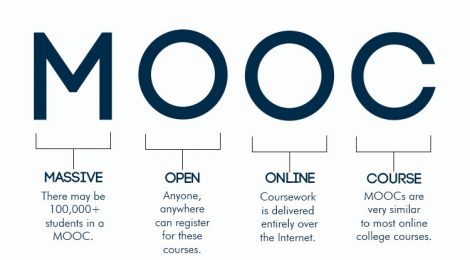
Resumen de los MOOC a cursar – Álvaro Sandí Valverde
MOOC I
- Name: Introduction to Public Speaking
- Platform: edx
- Language: English
- Course requirement
- Duration: 10 weeks – 5 hours per week
- Link: https://courses.edx.org/courses/coursev1:UWashingtonX+COMM220UWx_2+1T2015/
- Instructor: Dr. Matt McGarrity
- University: University of Washington
- Comment: I think that it is an excellent option to prepare for speech of the TFM and the final test of this course. Also, for my personal development in my professional career.
Contents
- Week 1 – Course Overview, Key Terms, and Introductory Speeches
- Week 2 – Preparing Impromptu Speeches
- Week 3 – Delivering Impromptu Speeches
- Week 4 – Informative speech basics
- Week 5 – Preparing informative speeches
- Week 6 – Delivering informative speeches
- Week 7 – Persuasive speech basics
- Week 8 – Preparing persuasive speeches
- Week 9 – Delivering persuasive speeches
- Week 10 – Conclusion
- Speech Assignment Submission and Peer Review
MOOC II
- Name: Energy Within Environmental Constraints
- University: Harvard University
- Platform: edx
- Language: English
- Duration: 10 weeks – 5 hours per week
- Link: https://www.edx.org/course/energy-within-environmental-constraints
- Comment: I think that it is very important because we need to understand how our energy system without ignore the energy costs and how economy works around the energy of 21 century.
https://www.youtube.com/watch?v=h2il6ib_qLc
Contents:
Humanity faces an immense challenge: providing abundant energy to everyone without wrecking the planet. If we want a high-energy future while protecting the natural world for our children, we must consider the environmental consequences of energy production and use. But money matters too: energy solutions that ignore economic costs are not realistic, particularly in a world where billions of people currently can’t afford access to basic energy services.
Objectives
- The basic engineering, environmental science, and economics of our energy system.
- A working understanding of energy technologies.
- Environmental impacts of the energy system, focusing on air pollution, climate change, and land use.
- Techniques for estimating monetary costs and carbon impacts.
MOOCs III
- Name: Oil & Gas Industry Operations and Markets
- Language: English
- Link: https://es.coursera.org/learn/oilandgas
- Duration: 8 hours
- University: Duke University
- Instructor: Lincoln Pratson
- Platform: coursera
Contents:
The oil and gas industry has an enormous impact on all aspects of daily life. Individuals, corporations, and national governments make financial and policy decisions based on the cost, use, and availability of these two natural resources. This two-week course looks at the two most fundamental aspects of the oil and gas industry, its operations and markets, each of which is addressed as a separate module in the course. In the operations module, the course provides an overview of the production of oil and gas, from initial exploration to final transport. The second module focuses on the forces that drive the industry’s operations, the oil and gas markets, including the cost of wells, seasonal impacts on prices, and the role of oil reserves. After every lesson, learners will take short quizzes to test their newly acquired knowledge, participant in crowd-sourced discussions about global markets, and complete a final project.
- Name: “Objetivos de desarrollo sostenible para América Latina y el Caribe”
- Language: Spanish
- Link: https://es.coursera.org/learn/objetivos-desarrollo-sostenible
- Duration: 14 hours
- University: Universidad de los Andes
- Instructor: Germán Andrade, Felipe Castro, Manuel Rodríguez, Diana Merecedes.
- Platform: coursera
Contents:
El presente curso tiene como objetivo principal profundizar y complejizar el análisis de los ODS y sus metas, a partir del estudio de las interacciones más fuertes entre estos objetivos y las tensiones que pueden surgir en la medida que se diseñen alternativas para el cumplimiento de estos para el año 2030. Adicionalmente, de manera transversal, se analizarán problemáticas latinoamericanas que permitirán al estudiante, fortalecer su capacidad crítica y analítica bajo una perspectiva territorial a nivel regional. Al finalizar el curso, el estudiante estará en la capacidad de contribuir al cumplimiento de los ODS en cada uno de sus países desde sus diferentes roles.
MOOC IV
- Name: Understanding Research Methods, English
- University: University of London
- Platform: coursera
- Language: English
- Duration: 6 hours
- Link:https://es.coursera.org/learn/research-methods
- Instructors: Dr J. Simon Rofe, Dr. Yenn Lee
- Comment: Actually I think that the course is very important for all of the classroom because I am sure that we can learn a lot of tools and techniques for our master final work and also for the people that want to do a PHD.
Contents:
This MOOC is about demystifying research and research methods. It will outline the fundamentals of doing research, aimed primarily, but not exclusively, at the postgraduate level. It places the student experience at the centre of our endeavours by engaging learners in a range of robust and challenging discussions and exercises befitting SOAS, University of London’s status as a research-intensive university and its rich research heritage.
The course will appeal to those of you who require an understanding of research approaches and skills, and importantly an ability to deploy them in your studies or in your professional lives. In particular, this course will aid those of you who have to conduct research as part of your postgraduate studies but do not perhaps have access to research methods courses, or for those of you who feel you would like additional support for self-improvement. No prior knowledge or experience in research is required to take this course and as such, the course is for everyone.



